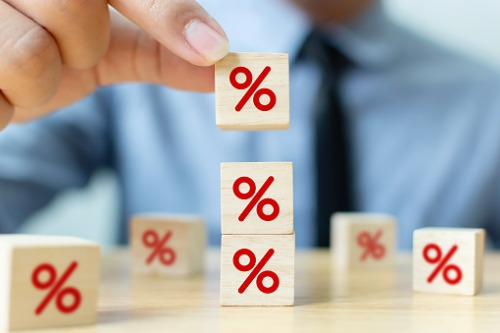

The cash rate is as low as it can go in Australia and is one of the key factors in the huge property boom that is currently keeping mortgage brokers busy.
But is it actually a good thing for the cash rate to be at 0.1%? While more business for brokers is obviously a good thing, there are plenty of downsides too. Many people, for example, are buying homes that they can perhaps not afford because of the low rates and the incentives offered by the government, particularly to First Home Buyers.
With the Reserve Bank of Australia (RBA) steadfastly saying that it will not move on the cash rate until 2024, it seems like it low rates are here to stay. Commonwealth Bank of Australia (CBA), the country's biggest bank, thinks otherwise however, and have suggested that they think it will go up by the end of 2022.
This one is easy: The cash rate is set by the governors of the RBA, who meet on the first Tuesday of every month and decide what the rate will be. Usually, by the middle of the afternoon, the news breaks across Australia and, well, nothing happens.
That is because it has been the same for months now, as low as it can go at 0.1%. For those with savings accounts, that isn’t necessarily great, as their money sat accumulating is doing nothing, but for those with home loans or looking to refinance, it is superb, because interest rates have never been cheaper and there has been a race to the bottom on price between lenders.
Currently, the RBA is keeping rates low in an attempt to stimulate the economy. While that is partly due to the COVID-19 pandemic, it was well before that when they began cutting interest rates, and they haven’t actually raised them in around a decade.
The financial situation in Australia at the moment is such that incomes are roughly static, but house prices are going up – and the RBA say that they will not budge on the cash rate until incomes have grown sufficiently. They are also monitoring unemployment, which they say must be below 5% before they will change anything.
Others disagree, however. CBA said it thinks that it will change sooner, as do Westpac. When CBA sneezes, the rest of the economy catches a cold, so when it changed its long-term rates, a move seen to be one that anticipated interest rate changes in a few years’ time, a whole host of other lenders also hiked their four- and five-year rates.
Quite simply, if the cash rate increases, then interest rates increase. The cash rate is the cost at which banks can lend from the RBA and each other, so if it costs them more to lend in general, then that will be passed onto customers. The central bank of Australia acknowledges that lenders would be reticent to lend money out were it not also cheap for them to access credit, so is keeping rates where they are in an attempt to encourage the flow of credit through the economy.
Home buyers are the ones currently seeing the benefits of this, as they are getting access to financing like never seen before. A note of caution should be sounded, however, as those entering into 30-year mortgages will only get cheap credit on the fixed loans that they have at the start and may have to do something different with their loans in four or five years’ time, when the price of money may be entirely different.
The RBA sets the cash rate and is the primary influence on it. It is independent of the government, who set economic policy, but obviously consult with them and are in constant dialogue about the general financial situation.
Meanwhile, the terms and conditions set for home loans and financial products are largely governed by the economic policy of the government of the day – responsible lending, regulators and stimulus, for example – but the price of money is not.
The secondary aspect is the price of money globally, which is often dictated by the bond market. The government buys bonds to ensure the stability of currency and the rate of inflation, providing banks with access to credit. We’re about to enter a new phase of term funding, which is likely to see cash cost more for banks to borrow, which in turn has seen some interest rates rise already.
The cash rate is fundamentally linked to interest rates across the economy, but that is most widely seen in the mortgage sector. Most people don’t care that much about asset finance or commercial lending, but most Australians care about mortgages and savings accounts because they have them.
Home loans are the most common form of lending in Australia and thus they are always big news: so any story about the cash rate, financial products, lenders mortgage insurance, present and emerging lender or anything to do with mortgages is of widespread public interest. The RBA, ever-conscious that confidence within the economy is vital – will always bear this in mind before doing anything with the cash rate.
